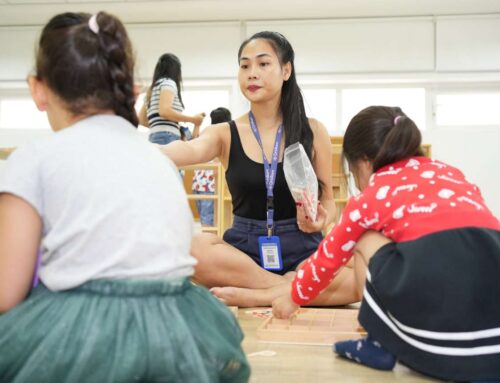If you’re a parent in Phnom Penh noticing that your child isn’t speaking clearly, isn’t combining words yet, or struggles to join classroom conversations, speech therapy can provide a clear, structured path forward. In this post, we’ll walk through how speech therapy supports children’s communication and learning, what a family can expect at OrbRom Center, and simple, research-informed strategies you can start using at home today.
Why early speech therapy matters in Phnom Penh
Strong communication underpins learning, friendships, and independence. When speech or language skills lag, children can become frustrated, avoid talking, or withdraw in class. That’s where speech therapy comes in: targeted, playful, consistent practice that strengthens sound production, vocabulary, grammar, and social communication. For families in Phnom Penh, timely referrals and community-based support mean challenges are addressed early—before habits solidify or confidence dips.
Want a quick primer on how therapy works? Start here: What is speech therapy?
How OrbRom Center tailors speech therapy
At OrbRom Center’s Speech Therapy service, we begin with a conversation—about your child’s strengths, routines, and goals. Then we complete a developmentally appropriate assessment to map out priorities. Some children need help with articulation (clear sounds), others with receptive/expressive language (understanding and using words), and others with social communication (turn-taking, perspective-taking, and flexible conversation).
When appropriate, we coordinate with our in-house colleagues in Assessments and, if needed, partner with Occupational Therapy for sensory-language overlaps. This integrated approach keeps therapy practical and consistent across home and school.
Helpful background reads for families:
What sessions look like (and why kids engage)
Great therapy feels like purposeful play. Sessions in Phnom Penh at OrbRom Center typically include:
-
Sound practice with movement: Children produce target sounds in short, motivating bursts, paired with actions and games to keep attention high.
-
Language expansion through play: We build vocabulary and sentence length by following the child’s interests—blocks, art, pretend play—embedding goals into natural routines.
-
Storytelling and sequencing: For school-age learners, we focus on organizing ideas, retelling events, and building narrative language that transfers to reading and writing.
-
Social communication coaching: We model scripts for starting conversations, asking for help, negotiating play, and shifting topics—skills that make lunchtime and group work easier.
Parents leave each session with one or two simple strategies to reinforce at home. Small steps, repeated often, compound into real gains.
Phnom Penh-specific considerations for families
Many Phnom Penh families speak Khmer at home and English at school. That’s normal—and bilingual exposure does not “cause” delay. A speech therapist can help you decide which language to target first (often the home language) and how to support transfer across settings. We also collaborate with teachers to ensure expectations match a child’s profile, reducing stress and building success in class.
If you’re comparing supports, this guide helps frame decisions: Speech therapy in Phnom Penh
Clear, achievable home strategies
Try these practical ideas this week:
-
Model + wait (5–7 seconds). Say a short target sentence (“I want juice, please.”), then pause. Many children need extra time to organize a response.
-
Recast, don’t correct. If your child says “Dog run,” reply, “Yes—the dog is running fast!” This keeps momentum while modeling grammar.
-
One new word per routine. Pick one mealtime word (e.g., “stir,” “slice,” “pour”) and use it 5–10 times naturally that day.
-
Narrate feelings. Label emotions as they arise—“You look frustrated; let’s try again together”—to connect language with regulation and reduce behavior escalations.
-
Sound spotlight games. Choose one target sound and build a 3-minute daily habit: name items with that sound, find it in books, and celebrate clear attempts.
How progress is measured (and celebrated)
Families deserve clarity. We use baseline measures, short-term goals, and periodic check-ins to track growth in intelligibility, vocabulary size, sentence length, and social participation. You’ll see progress in everyday wins—clearer requests, fewer communication breakdowns, and more confident classroom participation. Those outcomes are the heart of speech therapy.
For deeper reading on early signs and pathways to support, see:
-
What happens during an autism assessment? (helpful for broader developmental questions)
Getting started at OrbRom Center (Phnom Penh)
The first step is a consultation. We’ll review your concerns, recommend an assessment plan, and explain how goals translate into weekly sessions. Because we’re based in Phnom Penh, scheduling is flexible for school-age children and working parents, and our team coordinates directly with teachers when families request school collaboration.
If communication is becoming a daily struggle—unclear words, limited sentences, or difficulty keeping up with peers—now is the right time to explore speech therapy. With consistent practice, children gain the tools to participate, learn, and connect. Most importantly, they discover the confidence to share their ideas with the world.








Leave A Comment